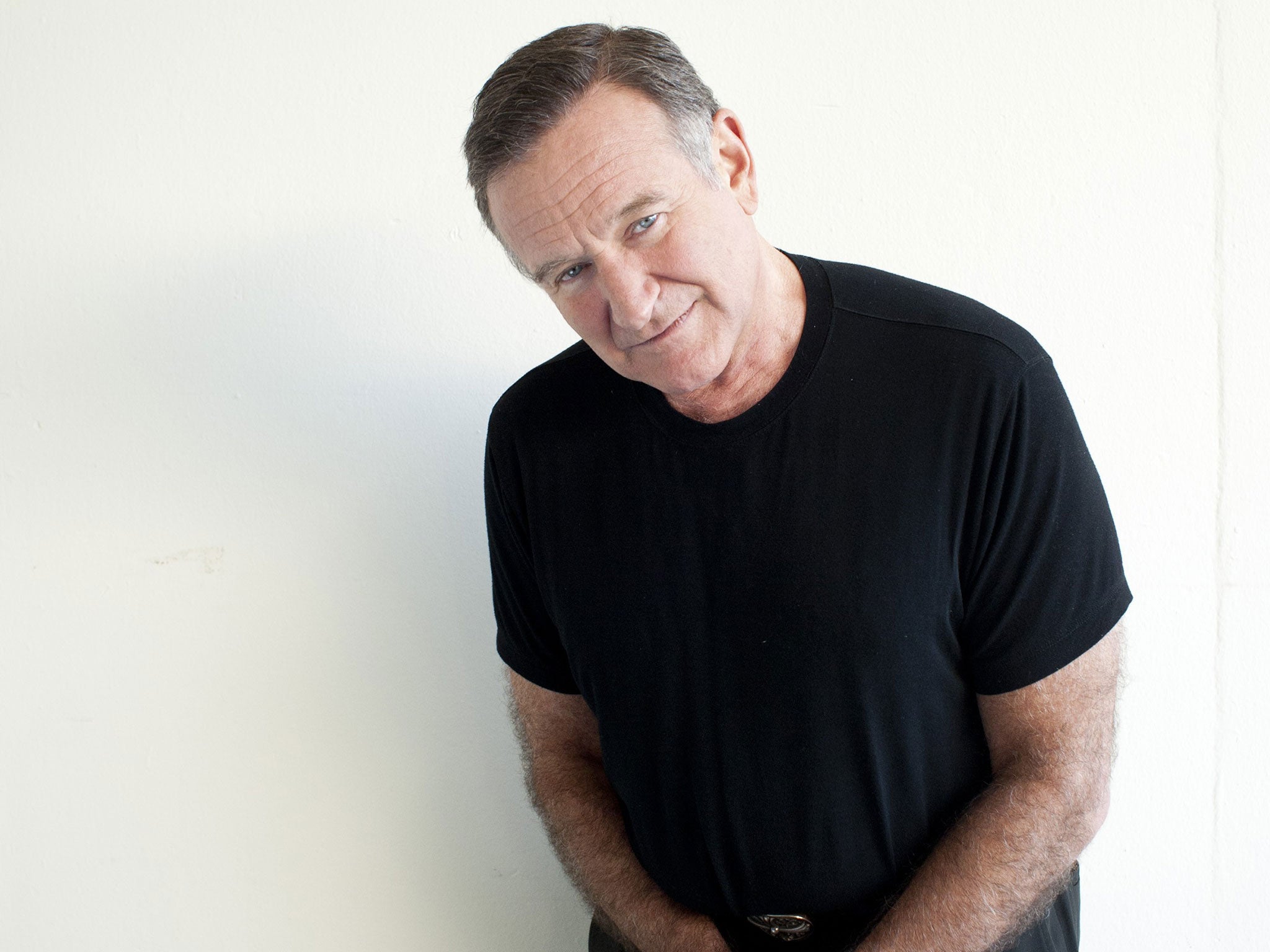Facebook and Twitter light up with tributes when a celebrity dies. Nauseating? Or the spirit of the age?
Celebrities and ordinary members of the public have been falling over themselves to tweet mournful messages about Robin Williams - a man they'd never encountered, and had only seen when he was pretending to be someone else. So have we become a shallow, sentimentalised society?

Your support helps us to tell the story
From reproductive rights to climate change to Big Tech, The Independent is on the ground when the story is developing. Whether it's investigating the financials of Elon Musk's pro-Trump PAC or producing our latest documentary, 'The A Word', which shines a light on the American women fighting for reproductive rights, we know how important it is to parse out the facts from the messaging.
At such a critical moment in US history, we need reporters on the ground. Your donation allows us to keep sending journalists to speak to both sides of the story.
The Independent is trusted by Americans across the entire political spectrum. And unlike many other quality news outlets, we choose not to lock Americans out of our reporting and analysis with paywalls. We believe quality journalism should be available to everyone, paid for by those who can afford it.
Your support makes all the difference.I can't believe the news about Robin Williams. I am so sad. I never met him but I just know that he was a great guy. Rest In Peace.
These are not my words (though they might easily have been), but those of Simon Cowell, who took to Twitter to pay his respects to the comic actor who killed himself on Monday.
It is tempting to be rather sniffy about Cowell's press release dressed up as a note of condolence. What's it got to do with him? He never met the guy, he's not expressing a unique sentiment or revealing a painful truth. He's just indulging in recreational grieving, a pursuit that first swept the nation after the death of Princess Diana.
Celebrities and wannabes have been falling over themselves to tweet mournful messages about Robin Williams, ostensibly so that they would get quoted in news stories, and in this way they could claim that, to a small extent, it became about them. There's nothing wrong in finding this all a little nauseating, but this is the way the world revolves today.
And what about Joe Public, the thousands – perhaps even millions – of ordinary people who posted similar messages of sympathy, who expressed seemingly heartfelt emotions, for a man they'd never encountered, and had only seen when he was pretending to be someone else? Have we become a shallow, sentimentalised society? Has touchy-feely replaced stiff upper lip to such a degree that we find it difficult to distinguish between real, imagined or peer-pressured feelings?
I'm not saying that we shouldn't feel sad about a famous person's death. Just because we haven't met him or her doesn't disqualify us from being touched by the fact and circumstances of their demise. I was shocked rather than saddened when I heard the news about Robin Williams' death. I never really took to him as a comic actor, finding his mannered persona just a little irritating, but it was his story, a deeply tragic resolution of the human condition, that made me properly sad. And like everyone else given pause for thought in such circumstances, I started thinking about my own life, and that of those around me. Yes, I felt doleful for Williams and his family, but that quickly gave way to a minor bout of self-reflection.
I didn't feel the need to share my thoughts on Twitter, but I wouldn't criticise anyone who did. Social media has changed society, and has democratised celebrity. Robin Williams had 140 characters in which to express himself, just like me and you, and his last message, delivered through keystrokes made by his very own fingers, was sent to me and to you, too. He wasn't our "friend" but he was our correspondent, and we felt connected to him.
And that's the point, really. Social media connects humans, and not just virtually. It links us more closely to other people's triumphs and tragedies. It gives us a sense of a greater humanity, and exposes us – albeit in a small way – to the wider truths of the human condition. It's no wonder we feel we know people we don't know, and that we're moved by their plight. And in that way, Simon Cowell was speaking for the nation.
Join our commenting forum
Join thought-provoking conversations, follow other Independent readers and see their replies
Comments